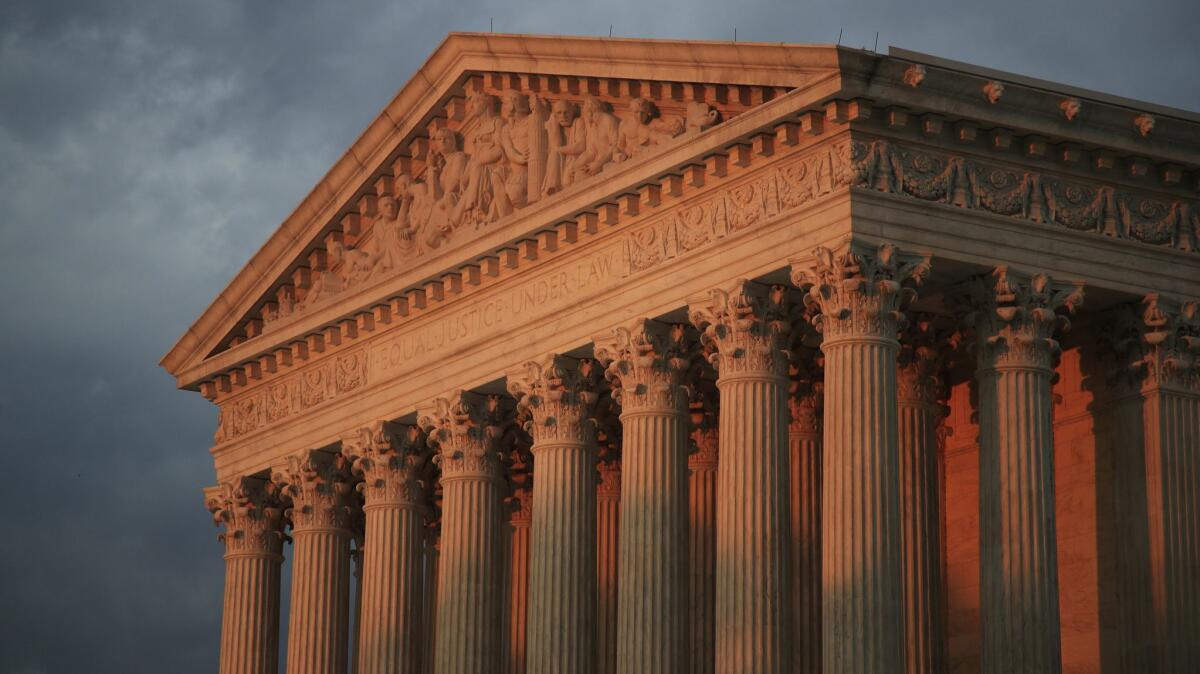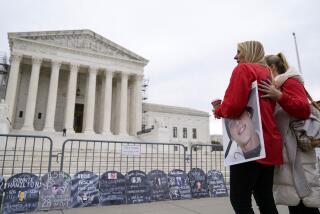Editorial: Seizing a car over $225 worth of heroin? The Supreme Court needs to rein in states’ forfeiture power

The Supreme Court on Wednesday heard the appeal of an Indiana man whose $42,000 Land Rover SUV was seized in a civil forfeiture action after he pleaded guilty to selling $225 worth of heroin to undercover police officers. But if the court rules for Tyson Timbs, it will be doing more than righting an individual wrong; it will be affirming that states as well as the federal government are bound by the 8th Amendment’s ban on “excessive fines.”
It might seem obvious that states may not violate any of the Bill of Rights. In fact, the Supreme Court only gradually has recognized that, under the 14th Amendment’s guarantee of due process, various protections in the first 10 amendments to the Constitution apply to the states as well as the federal government.
The court has also taken its time in deciding which protections in the Bill of Rights are “incorporated” against the states. The court has held that the 8th Amendment’s ban on “cruel and unusual punishments” applies to both state and federal governments and has assumed that is also true of the amendment’s ban on “excessive bail.” The question posed by Timbs’ case is whether states are also bound by that amendment’s ban on “excessive fines.”
Enter the Fray: First takes on the news of the minute from L.A. Times Opinion »
A judge ruled that forcing Timbs to surrender his SUV amounted to an “excessive fine,” noting that the value of the vehicle was four times greater than the maximum fine for his conduct. But the Indiana Supreme Court rejected Timbs’ claim, holding that the “excessive fines” provision of the 8th Amendment hadn’t been incorporated against state action.
That’s clearly the wrong conclusion. It conflicts with the principle articulated by the Supreme Court that states as well as the federal government must recognize protections in the Bill of Rights that are “fundamental to our scheme of ordered liberty” and “deeply rooted in this nation’s history and tradition.”
If the Supreme Court identifies such a protection as applying to the federal government, it must extend it to the states as well. We thought the court was wrong to rule in a 2008 case from Washington, D.C., that the 2nd Amendment conferred an individual right to keep and bear arms. But having recognized such a right, the court was correct to rule in 2010 that it must also be respected by the states.
In an exchange with Indiana Solicitor Gen. Thomas Fisher, Justice Brett M. Kavanaugh asked: “Isn’t it just too late in the day to argue that any of the Bill of Rights is not incorporated?” The answer is obvious. If the federal government can’t engage in grossly disproportionate confiscation of property, neither may the states.
Follow the Opinion section on Twitter @latimesopinionand Facebook
More to Read
A cure for the common opinion
Get thought-provoking perspectives with our weekly newsletter.
You may occasionally receive promotional content from the Los Angeles Times.






